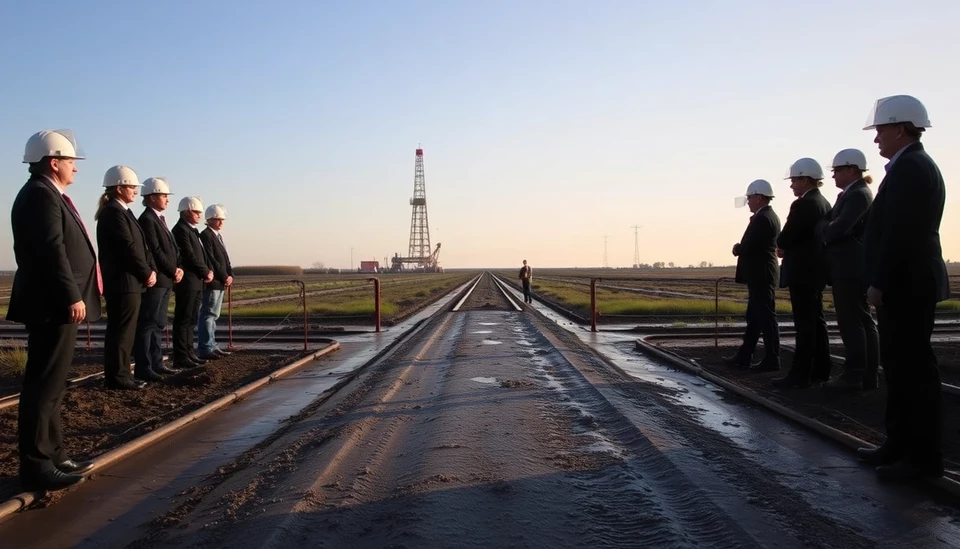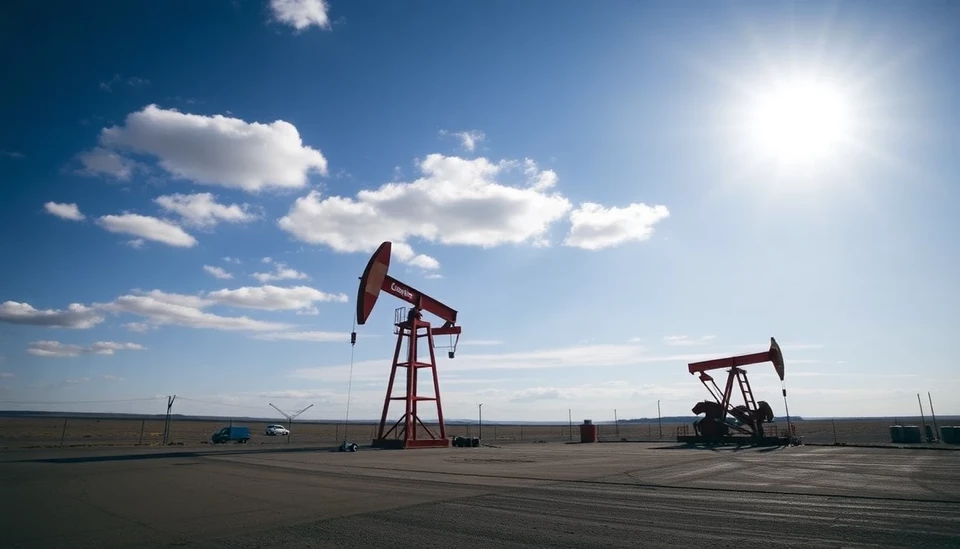
In a strategic push to redefine the American energy sector, former President Donald Trump has announced comprehensive plans aimed at bolstering the oil and gas industries across the United States. Known for his pro-fossil fuel stance during his presidency, Trump's renewed emphasis on hydrocarbons demonstrates a deep commitment to energy independence and economic growth through the revival of these traditional energy sources.
This initiative comes amid a broader conversation about energy security, particularly as the nation looks to navigate the complexities of a rapidly changing global landscape that has seen fluctuating energy prices and geopolitical tensions influencing supply chains. Trump's administration had previously sought to expedite fossil fuel production, and this latest move promises to invigorate that agenda while targeting legislative and regulatory barriers that have slowed development.
With a keen focus on deregulation, Trump's blueprint emphasizes easing restrictions on drilling and production permits, aiming to unleash what he labels as the "untapped potential" of American oil reserves. This approach, according to sources close to the plan, includes initiatives to streamline federal approval processes for drilling projects and to expand exploration efforts on federal lands. By fostering a more favorable environment for energy producers, Trump is positioning this sector as a cornerstone of economic revitalization.
Furthermore, Trump's vision underscores significant investments in infrastructure, particularly pipelines necessary for transporting oil and natural gas effectively across states. His administration is expected to facilitate partnerships with private companies to expedite the planning and construction of new energy transit lines, which are essential for supporting increased production levels. Amid ongoing discussions about renewable energy, Trump's plan distinctly prioritizes traditional energy sources, arguing that they remain integral to the U.S. economy and energy grid reliability.
As his plan unfolds, Trump is also taking the energy conversation directly to voters, emphasizing job creation within fossil fuel industries during campaign rallies and public appearances. He argues that resurrecting traditional energy production will generate thousands of jobs, revitalize local economies, and strengthen national energy dominance. Trump's commitment to a strong oil and gas sector aligns with many of his supporters who view energy independence as critical to national security and economic stability.
Critics of this aggressive push into fossil fuels warn that increased reliance on oil and gas could undermine progress towards renewable energy goals and contribute to environmental degradation. However, defending his approach, Trump insists that it is possible to balance fossil fuel growth with environmental stewardship through innovative technologies and practices that mitigate environmental impacts.
As the political landscape evolves, the debate surrounding the future of U.S. energy policy remains at the forefront. Trump's reenergized push for oil and gas may act as a polarizing issue moving forward, especially as different factions within the electorate hold varying views on sustainable energy initiatives.
In summary, Trump's ambitious plans to reshape U.S. energy priorities reflects his longstanding commitment to traditional energy sources in a time of dynamic change. As discussions about energy independence and economic development continue, the implications of this resurgence in fossil fuel focus will likely resonate across political and economic arenas in the coming years.
#TrumpEnergy #OilAndGas #USEnergyPolicy #FossilFuels #EnergyIndependence #EconomicGrowth #Infrastructure #Deregulation
Author: John Harris

